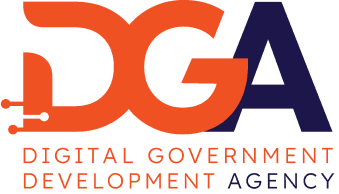E-government agency plans huge transformation
In a bid to create Smart Government, the Electronic Government Agency is aiming to provide transformed-government (T-Gov) services, an integrated back office for all government agencies and e-services covering around 200 organisations before the end of 2016.
Electronic Government Agency (EGA) director Sak Segknoonthod said the agency was currently developing a cyber-ID directory for all government staff, including names, e-mail addresses, telephone numbers and organisations. The cyber IDs will be used to offer a single sign-on for government staff over the Internet.
"The agency has now offered cyber IDs to about 120,000 out of a total of about 1 million government staff. We expect to offer them all cyber IDs over the next four years," Sak said. "This will also support a government-messaging infrastructure, through which government organisations will be able to communicate via the Internet."
He said the EGA would set up a common e-mail service for e-government agencies and their staff. It will also provide common applications such as video conferencing to government organisations.
To help it reach its goals, the agency plans to train government staff to enhance their information-technology literacy and working capacity. Meanwhile, it will develop basic infrastructure and applications for government employees working in the e-government portal and offer a variety of e-government services from various agencies to the public via a single sign on. Currently, it offers about 20 e-government services to the public.
Sak said the EGA was making a big effort to develop e-government services so that members of the public and private-sector organisations could easily access information and services. Such e-government services will create equality in treatment, reductions in costs and transparency for government business. People and private businesses will be able to use information technology to access e-government services anywhere and anytime.
The agency also plans to reduce budgetary complexity and provide a consultancy service to government agencies related to IT developments and the use of a common infrastructure for e-government around the country. It will also promote the establishment of a common standard for all e-government services.
Sak said the agency would develop an e-government cloud-computing service, an e-notary service, and e-archive applications.
Already, the EGA has developed an e-government portal that will become a central point for accessing information and e-government services via a single user name and password. The system is designed for ease of use.
While all this is happening, the EGA is developing its own organisation and is planning to apply for ISO9000, ISO20000 and ISO27001 certification in order to create transparency and prove its efficiency. It is also preparing to migrate the government information network (GIN) into Internet Protocol version 6 (IPv6) – the IP standard that will succeed the present IP version 4.
"We have a goal to provide transformed government (T-Gov) services to support the Smart Government concept by 2016," Sak said. "This will include an integrated back office for government agencies, migration of information and services between government agencies, and the provision of e-government services for about 200 organisation as a one-stop service."
Source
http://www.nationmultimedia.com/2011/06/28/technology/E-government-agency-plans-huge-transformation-30158926.html

